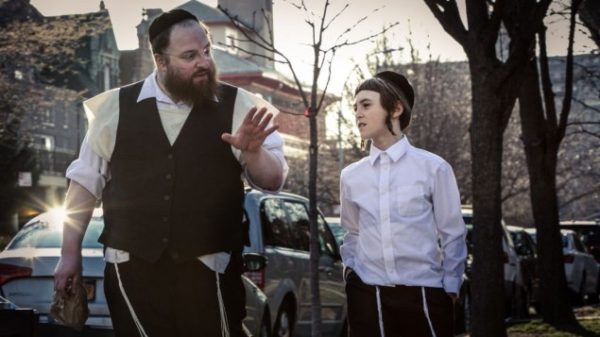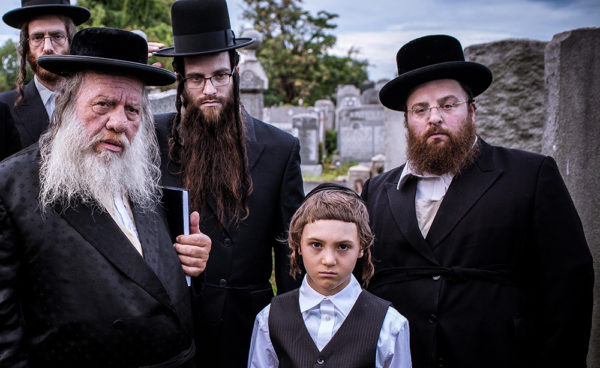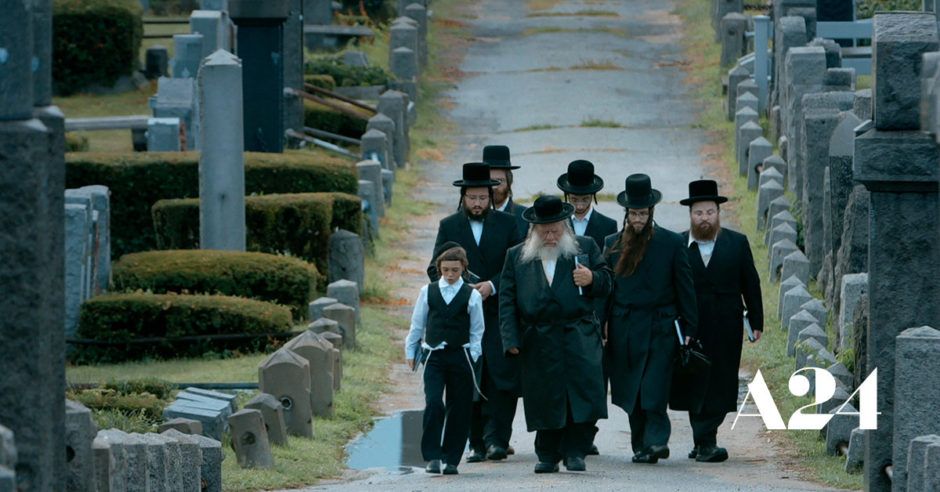Joshua Weinstein has gone where no American movie director has ventured in about 70 years. He has made a film that unfolds almost entirely in Yiddish, with a sprinkling of English and Spanish thrown in.
Menashe, which opens in Canadian theatres on August 11, was filmed in Borough Park, a Hassidic neighborhood in New York City. Menashe, its central character, is a single father in his late 30s who’s still in mourning over the untimely death of his wife, Leah.
Since Leah’s passing, Menashe’s young son, Rieven (Ruben Niborski), has been cared for by his judgmental brother-in-law, Eizek (Yoel Weisshaus), and his wife. Given that Menashe’s community frowns upon one-parent families, he can only reclaim Rieven if he remarries. The trouble is that there are no prospects in sight for Menashe, played exceedingly well by Menashe Lustig (who went through the same experience).

A member of a Hassidic sect, he lives in a dingy flat and works at a supermarket as a cashier and shipper, earning a minimum wage salary. In the opening scene of this heart-felt neo-realistic film, he annoys his manager by complaining about an unwashed lettuce a customer — a mother of eight children — was going to purchase.
The elder in Menashe’s tight-knit and insular community, the rebbe (Meyer Schwartz), reminds him that he can only regain custody of his son after he finds a marriage partner and establishes a suitably pious household. But Menashe is in no hurry to meet a woman, and besides, he’s quite choosy. On a date, he dismisses a candidate, a widow with two children, by telling her that she’s not his “type.” She’s disappointed. “Marriage and kids,” she muses. “What else is there?”
Menashe, a big fleshy man, is no catch either. Sporting a scraggly beard, and wearing a black yarmulke, black vest and white shirt, he appears slovenly, though he speaks earnestly of the virtues of cleanliness. Rieven is puzzled why his father dispenses with the traditional garb of ultra-Orthodox Jewish men, a black caftan and a black hat.
Menashe’s casual attire is not the only problem. Having decided to reclaim Rieven before the appointed time, Menashe upsets Eizek, who shows him contempt rather than respect. As far as he’s concerned, Menashe is a shlemiel, Yiddish for an inept, clumsy person. To make matters worse, Menashe has fallen behind in his rent, as the landlord pointedly reminds him.

Reprimanding Menashe for having reclaimed his son too soon, the rebbe issues a decree that Rieven must be returned to Eizek’s household within a week, following the unveiling of Leah’s tombstone. In an unguarded moment, Menashe confides in Eizek, admitting there’s room for self-improvement. He decides to redeem himself by cooking a meal in Leah’s memory, but his plan goes slightly awry.
The film achieves a high degree of authenticity by way of small but telling details about the Hassidic lifestyle. When he awakes in the morning, Menashe dips his hands into a plastic bowel of water on the floor and washes his face. At regular intervals, he and his fellow Hassidim chant prayers, sing songs and drink alcohol, but ironically, his only true confidants are two Hispanic co-workers with whom he shares one of his secrets. And in true Hassidic fashion, Menashe decorates one of his walls with a painting of a famous rabbi.
Menashe, a simple and affecting film, burrows into a deeply religious, self-contained community that keeps its distance of secular America.
